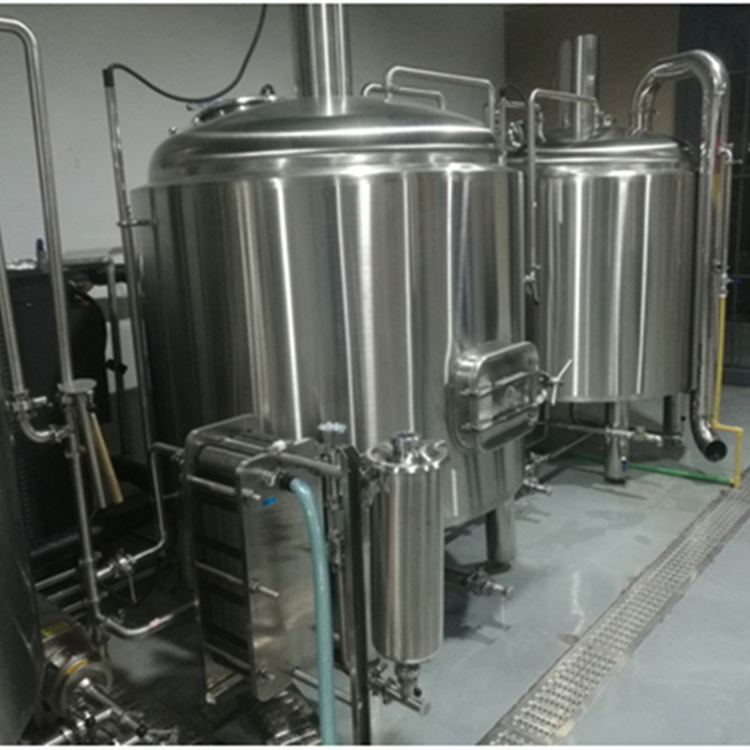
Best Brewhouse Mash grain water mixer
- * Processing : Fermenting Equipment, Beer Brewing
- * Brand : WEMAC
- * Condition : New
- * Material : SUS 304 316
- * Place of Origin : Weifang, China (Mainland)
- * Control system : AUTO/MANUAL
- * Warranty : Within 24 months against the date of B/L
- * Voltage: : To Be Determined (220V/ 380V/ 415V)
Best Brewhouse Mash grain water mixer
The art of brewing begins with the meticulous process of mixing grains and water in the brewhouse mash. This critical step lays the foundation for the flavor, aroma, and mouthfeel of the final brew. To achieve excellence in this stage, selecting the right brewhouse mash grain water mixer is paramount.

The function of Mash system feed grain and water mixer:
When malt or other grains are crushed,water needs to be added to start forming mash (maltose without filtration).In this process,the added water is called feed water.How much water should be added depends on the brewing method and raw materials used by the brewer,as well as the individual recipe of each beer brewer.The general rule of thumb for single-step sugar production is to use 1.2 liters of water for about 1 kg of grain.This method is often used to brew malt beer.
When the crushed malt powder falls into the mash tun, the mixing water that has been automatically adjusted in temperature is added to the mixing chamber in a certain proportion, and the material water is distributed through the parachute structure to make the malt powder and the mixing water Evenly mixed and then directly sent to the mash tun, the material-liquid mixing ratio and slurry temperature meet the process requirements at one time, which can fully reduce the tendency of malt powder to agglomerate during feeding,reduce material loss in the production process,and improve the uniform stability of the mash operation.
By adding this device, customers can reduce the occurrence of malt powder sticking and forming lumps during use. During the mashing process, the malt powder can be more fully saccharified.

Indoor exhaust device of mashing system:
The secondary steam from the saccharification process and the boiling process can be discharged indoors to reduce environmental pollution caused by the direct emptying of the secondary steam. The secondary steam discharged indoors can also be recovered as waste heat and converted into hot water for other uses. The purpose of saving energy. Using the indoor exhaust device can also make the brewing mashing space no steam or dripping water, and optimize the working environment.
Both the indoor exhaust device and mash grain water mixer are designed for better operate the brewhouse,makes the brewing spaces more clear and save a lot of labor cost.
Key Considerations of choosing the best brewhouse mash grain water mixer
Mixer Design
Look for mixers designed specifically for the brewing industry. They should be equipped with features that ensure thorough and efficient mixing of grains and water.
Choose a mixer with a robust design, constructed from high-quality materials such as stainless steel, to withstand the demands of the brewing environment.
Mixing Efficiency
Opt for a mixer that ensures uniform mixing of grains and water, preventing clumping and ensuring consistent hydration of the grains.
Variable speed controls can be advantageous, allowing brewers to adjust mixing intensity based on the specific requirements of each brew.
Heating Capability
Some mixers come with integrated heating elements, aiding in temperature control during the mashing process. This feature is particularly useful for maintaining precise temperatures for enzymatic activity.
Ease of Cleaning
Hygiene is crucial in brewing. Choose a mixer with a design that facilitates easy disassembly and cleaning. Stainless steel surfaces are ideal for preventing contamination and ensuring cleanliness.
Integration with Brewing System
Consider how well the mixer integrates with your overall brewing system. Compatibility with your brewhouse setup and the ability to connect seamlessly with other equipment is essential for a streamlined brewing process.
Capacity and Scale
Select a mixer that aligns with the scale of your brewing operation. Whether you are a small craft brewery or a large-scale production facility, the mixer should meet your capacity requirements without compromising efficiency.
Best Practices:
Consult with Brewing Experts
Seek advice from brewing experts or equipment suppliers who can provide insights into the specific needs of your brewery. They can guide you towards mixers that have proven success in similar brewing environments.
Trial Runs and Testing
Before making a final decision, consider conducting trial runs or testing with potential mixers. This hands-on approach allows you to assess the mixer's performance in your unique brewing conditions.
Read User Reviews
Explore user reviews and testimonials to gain perspectives from other brewers who have experience with the mixers you are considering. Real-world feedback can be invaluable in making an informed decision.
Conclusion
The brewhouse mash grain water mixer plays a pivotal role in the brewing process, influencing the quality and characteristics of the final beer. By carefully considering the design, efficiency, heating capability, ease of cleaning, integration with your brewing system, and overall capacity, you can select the best mixer for your brewery. Investing time in research, consulting experts, and exploring user reviews will ensure that your chosen mixer aligns seamlessly with your brewing goals, ultimately contributing to the success of your craft. Cheers to perfecting the art of brewing!
FAQ
1. Why is the selection of a brewhouse mash grain water mixer so crucial in the brewing process?
The brewhouse mash grain water mixer is critical because it sets the foundation for the entire brewing process. It ensures thorough and consistent mixing of grains and water, influencing the flavor, aroma, and mouthfeel of the final beer.
2. What features should I look for in a brewhouse mash grain water mixer's design?
Look for a robust design made from high-quality materials such as stainless steel. The mixer should be specifically designed for brewing, with features that promote efficient mixing and easy cleaning.
3. How does the efficiency of mixing impact the brewing process?
Efficient mixing prevents clumping and ensures uniform hydration of grains. This is essential for achieving consistent results in terms of flavor and texture in the final beer.
4. Are variable speed controls important in a brewhouse mixer?
Yes, variable speed controls allow brewers to adjust the mixing intensity, providing flexibility based on the specific requirements of each brew and ensuring optimal results.
5. Why is the heating capability of the mixer important?
Some mixers come with integrated heating elements, aiding in temperature control during the mashing process. This feature is crucial for maintaining precise temperatures to support enzymatic activity.
6. How important is ease of cleaning in a brewhouse mash grain water mixer?
Hygiene is paramount in brewing. A mixer with a design that facilitates easy disassembly and cleaning, preferably with stainless steel surfaces, helps prevent contamination and ensures cleanliness.
7. How can I ensure that the mixer integrates well with my brewing system?
Consider the compatibility of the mixer with your overall brewing system. Ensure that it can connect seamlessly with other equipment, contributing to a streamlined brewing process.
8. What factors should I consider in terms of capacity and scale when selecting a mixer?
Choose a mixer that aligns with the scale of your brewing operation. It should meet your capacity requirements without compromising efficiency, whether you are a small craft brewery or a large-scale production facility.
9. Should I consult with brewing experts before making a decision?
Yes, consulting with brewing experts or equipment suppliers can provide valuable insights into the specific needs of your brewery. They can guide you towards mixers that have proven success in similar brewing environments.
10. Why is conducting trial runs or testing with potential mixers recommended?
Trial runs allow you to assess the performance of the mixer in your unique brewing conditions. This hands-on approach helps you make an informed decision based on the mixer's actual performance in your brewery.
11. How can user reviews help in the decision-making process?
Exploring user reviews and testimonials provides real-world feedback from other brewers who have experience with the mixers you are considering. This insight can be invaluable in making a well-informed decision tailored to your brewery's needs.
Send a Message
If you want to ask anything just fill in the form below and send us.
Write a review
Products
- Beer brewery equipment
- Craft brewing equipment
- Home brewing equipment
- Microbrewery equipment
- Commercial brewing equipment
- Industrial brewery equipment
- Pilot brewing system
- Brewhouse & Mash system
- Fermentation tank
- Bright / Brite tank
- CIP system
- Beer filling machine
- Pasteurizer
- Hop gun
- Yeast propagation equipment
- Beer concentration equipment
- Carlsberg flask
- Reverse osmosis water filtration systems
- Mobile water treatment systems
- Water Purification Equipment
- WFI equipment
- Purified water tank
- CIP system
- Multi effect water distiller
- Pure steam generator
- WFI tank
- Solution preparation tank
- Tube heat exchanger
- Storage and distribution system
- Liquid preparation system
- Demineralized water system
- Vapour compressor
News & Exhibitions
- Why Beer Concentration Matters: Unpacking the Standard ABV Range
- Why Every Craft Brewer Needs a Pilot Beer Brewing System
- Top 5 Benefits of Using a Pilot Beer Brewing System for Small Breweries
- Setting Up a Microbrewery? Why Turnkey Equipment Might Be Right for You
- How Nano Brewery Equipment is Changing Experimental Brewing: A Deep Dive into Small-Scale Innovation
- Essential Craft Beer Equipment for Starting Your Brewery
- Integrating Smart Equipment into Your Microbrewery
- From Grain to Glass: Building the Perfect Complete Brewing System for Your Home
TAGS
- turkey brewery equipment
- small beer brewery equipment,mini beer brewery equ
- 15 gallon jacketed fermenter
- home brewing distillation equipment
- sovereign stainless steel fermenter
- brewing equipment manufacturers uk,home brewing eq
- craft brewery equipment for sale, craft beer equip
- complete brewery for sale
- automatically brew equipment,50L Brewing equipment
- Nano brewery equipment, brewing systems manufactur
- beer brewing equipment
- dry hops addition
- hop additive gun
- hops addition gun
- pilot brewing system
- Microbrewery machine
- mixing tank manufacturers
- Craft beer making equipment for Malaysia
- CIP system
- professional Cleaning in place equipment
FEATURED PRODUCTS

Best Brewhouse Mash grain water mixer
grain and water mixer in beer brewhouse-mash tun,plays an role of mixing water and grain.When the crushed malt powder fa...
More >>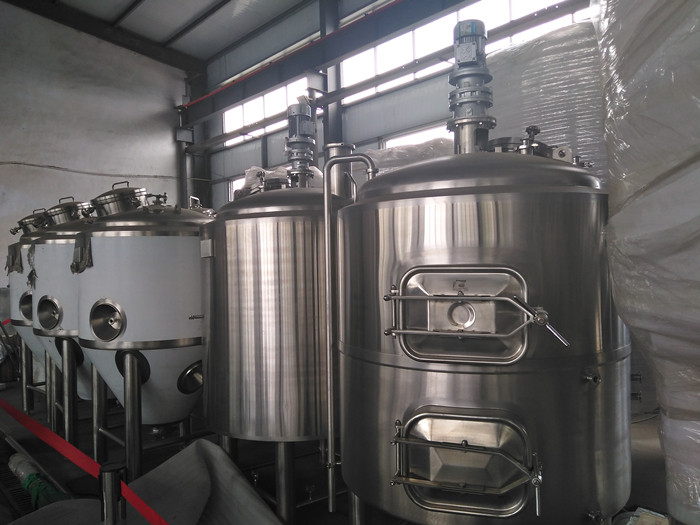
Belgium 2 vessels craft beer making brewery equipment ZXF
2 vessels craft beer brewery system are in discount in Belguim,all stainless steel 304 material,professional beer brewin...
More >>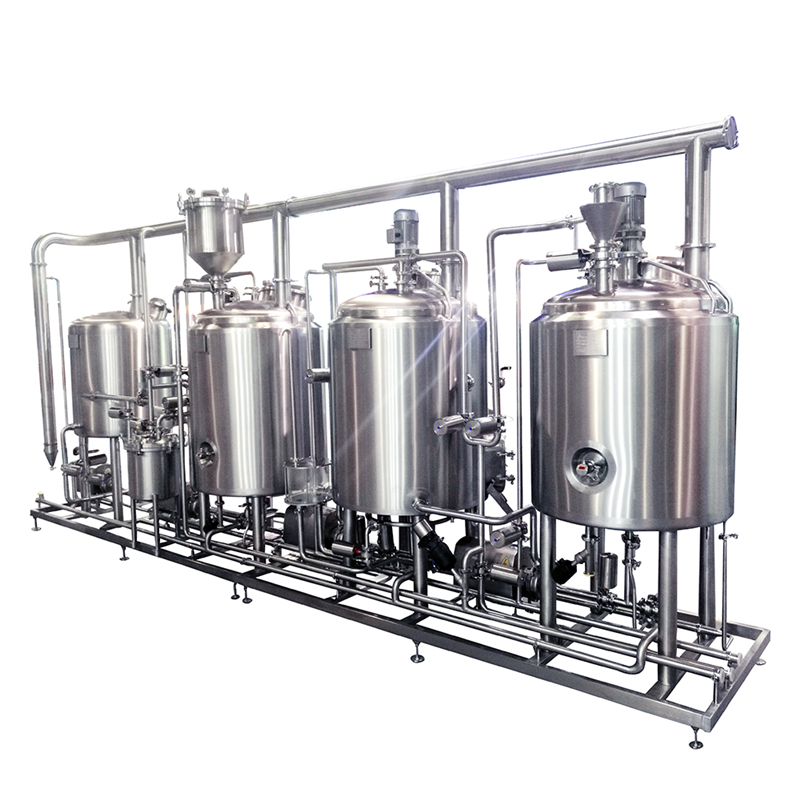
2 vessels 3 vessels Stainless steel beer brewhouse brewery equipment ZXF
2vessels and 3 vessels combination beer brewhouse,our experienced team of engineers and brewers work together to design ...
More >>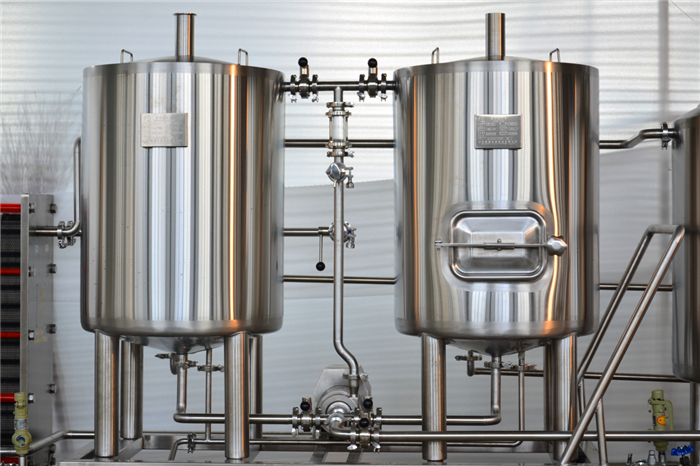
2 vessel brewhouse 500L beer brewing equipment
2 vessel brewhouse 500L beer brewing equipment is the most commonly used in brewery.One of them is a mash tun,the other ...
More >>
3BBL 5BBL 500L Beer brewing tank brewpub Korea ZXF
3BBL 5BBL professional craft beer brewing machine,Automatic and semi-automatic beer brewing production equipment, heatin...
More >>549.jpg)
single vessel electric brewing system
Single vessel electric brewing system belongs to small beer brewing system. Small space, high degree of automation, simp...
More >>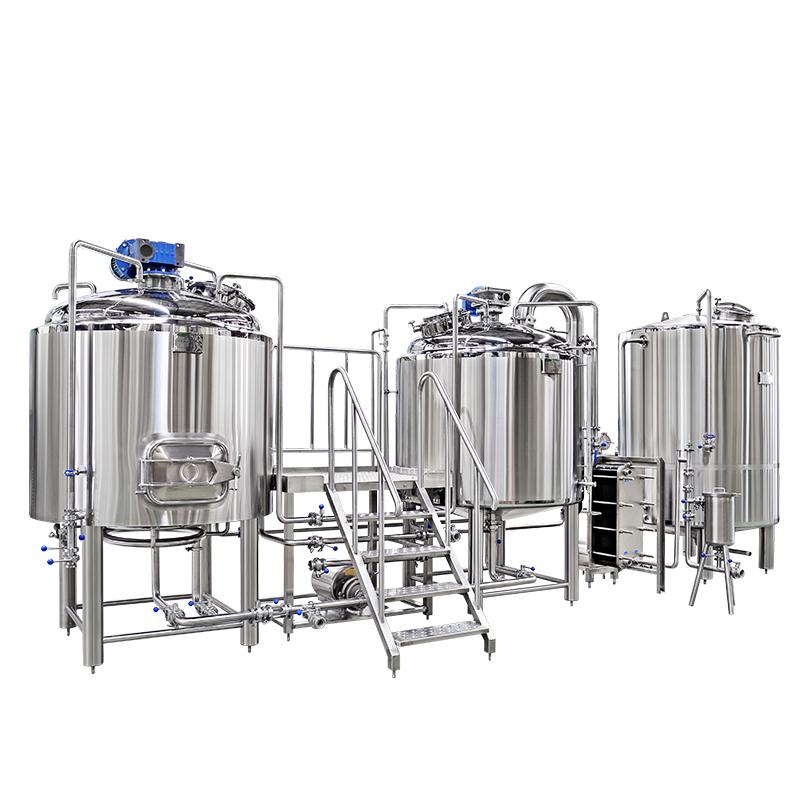
3BBL 5BBL fresh bar beer brewing breweries system suppliers ZXF
Professional brewery brewing system planning and design, one-stop product service,two vessels/Three vessels/four vessels...
More >>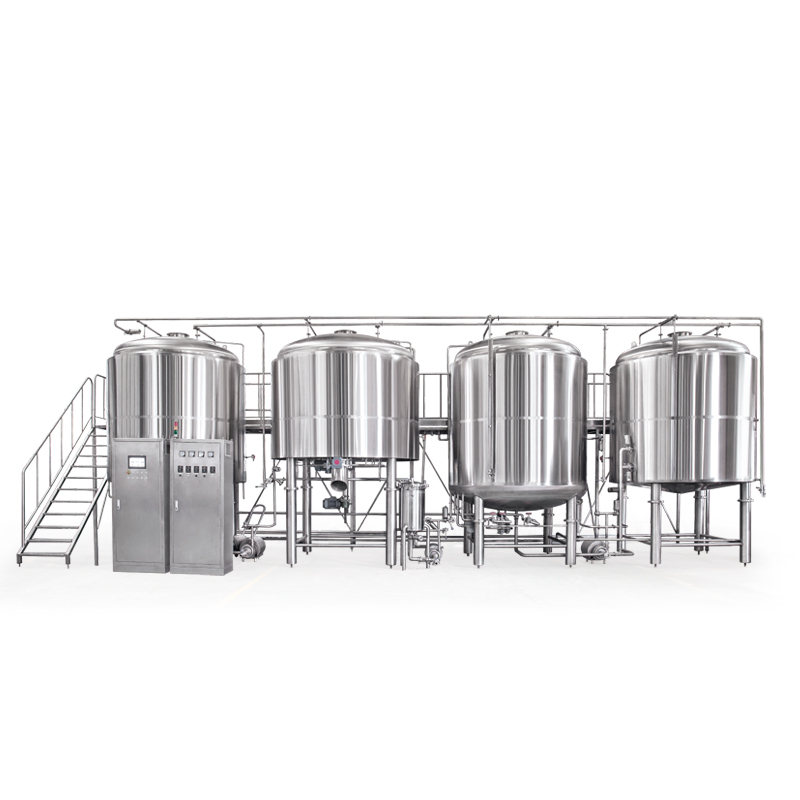
2500L 5000L Craft draft beer making Full Automatic Brewery Equipment Automatic welding ZXF
5000L draft beer brewing system, full automatic brewery equipment for craft beer production from malt to beer
More >>

